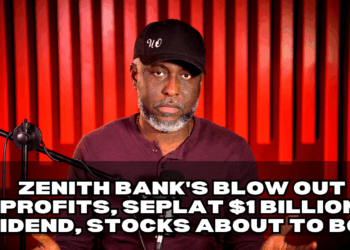Seplat Petroleum Development Plc, an independent indigenous Nigerian upstream exploration and production company, has released its financial statement for the first quarter (Q1) ended March 31, 2020.
Most of the company’s performance indicators were negative as it has been caught up in the global oil market crisis. A summary of the quarterly performance shows that the oil and gas firm recorded an 18.2% decrease in revenue, dropping from $159.5 (N48.9 billion) in Q1 2019 to $130.5 (N42.4 billion) in Q1 2020. There was a huge drop in gross profit, with the company recording $33.1 (N10.8 billion) in Q1 2020 as against the $81.4 (N24.9 billion) recorded for the same period in 2019. This represents a massive 59.3%.
The profit before tax/loss shows a loss of $105.8 (N34.3 billion) in Q1 2020 as against a profit of $35.8 (N10.9 billion) which was recorded for the corresponding period in 2019. This represents a huge 395.5% decrease.
READ ALSO: Banks that hedged against 2020 Oil price crash
Reason for the loss
A cursory view of the financial statement shows that the company booked N47.5 billion in impairments, as the company decided to revalue its oil and gas assets following the crash in oil prices. Included in Seplat’s assets is its interest in oil and gas mining licenses, whose values are tied to the price of crude oil. The company provided the following explanation in its notes to accounts:
“Impairment gain on financial assets relates to the reversal of previously recognised impairment losses on other receivables. During the period, the group recognised an impairment loss of N47.5 billion ($146 million) on its non-financial assets. The impairment is primarily as a result of re-assessment of future cash flows from the Group’s oil and gas properties due to a significant fall in oil prices.”
The impairments resulted in a loss after tax of N34.6 billion ($106.5 million).
A defiant Austin Avuru, the CEO of Seplat, shifted focus to its gas business, explaining that it was less exposed to the price drop currently ravaging the upstream sector.
READ MORE: IMF approves $3.4 billion for Nigeria, largest emergency support so far
“We have the benefit of long-term contracted gas revenues that are insulated from oil market volatility,” he said.
The CEO also tried to comfort investors who may be worried about the company’s ability to continue to meet its cash flow obligations.
“We are achieving substantial cost reductions from our suppliers and managing our own costs even more carefully in this unprecedented and challenging period. We are in constant dialogue with partners on monies owed and are pleased to report that our cash flow remains robust and we have significant cash in reserve. This, coupled with the majority of our debt repayment obligations extending beyond 2021, gives us confidence that we can continue to operate comfortably within the covenants on all lines of debt.”
More losses?
Despite the apparent defiant tone by the CEO and the management of Seplat, the company still faces significant headwinds of drops in oil prices and cut in output forced by OPEC. Even with its optimism about gas, crude oil still represents about 83% of revenues at N34.9 billion, compared to gas at N7.5 billion. For Seplat to meet up with its cash obligations and running cost, it still needs revenues from crude oil.
READ ALSO: Oil prices drop to 21-year low as demand and storage crises persist
Seplat is also quick to cite its crude oil hedges and low cost of production of US$7.7/boe, though it still needs to pay for the cost of running operations. When oil prices were above $50/bbl Seplat spent about 47% of its revenues as the cost of sale and another 20% of gross profits on OPEX. Gross margins fell to 25% this quarter from 51% the same period last year. Despite its hedge, the company could suffer more losses, especially from inventory pile-ups and loss of business.
Seplat expects production of 47-57 kboepd (inc. Eland 6-10kbopd) for the full year, subject to market conditions, and hedged 1.5MMbbls at US$45/bbl from Q1 to Q3 2020.
























